Projekt mobilnosti šolskega osebja: UČINEK
Obdobje izvajanja projekta: 01.09.2020-31.08.2022
Namen in glavni cilji projekta:
Namen projekta je načrtno izobraževanje in usposabljanje šolskega osebja v strukturiranih tečajih v tujini za pridobivanje ključnih in poklicnih kompetenc. Namen je tudi vzpostavljanje stikov s tujimi učitelji in strokovnjaki na področju izobraževanja, spoznavanje različnih organizacij, njihovega načina dela in tujih sistemov izobraževanja ter izmenjava znanja, dobrih praks in izkušenj s posamezniki in z organizacijami po Evropi.
Cilji projekta:
Pridobivanje ključnih kompetenc šolskega osebja:
- Izboljšanje kompetenc poučevanja (učne metode, tehnike, stili poučevanja…)
- Izobraževanje s področja dela z osebami s posebnimi potrebami
- Izboljšanje kompetenc vodenja, upravljanja, odločanja, organizacije dela in časa;
- Izboljšanje kompetenc komunikacije in timskega dela;
- Pridobivanje kompetenc obvladovanja stresa in konfliktov;
- Razvijanje čustvene inteligence za dobre medosebne odnose
Ključni rezultati: Izvedba 15 mobilnosti v tujini v strukturiranih tečajih z namenom strokovnega usposabljanja učiteljev in drugih zaposlenih na BC Naklo, za pridobitev dodatnih znanj in veščin, ki jih bodo uporabljali pri svojem delu in nadaljnjem sodelovanju na mednarodnih projektih.
Koordinatorica:
Martina Kramarič
martina.kramaric@bc-naklo.si
+386 (0)4 277 21 21

Italy - Florence
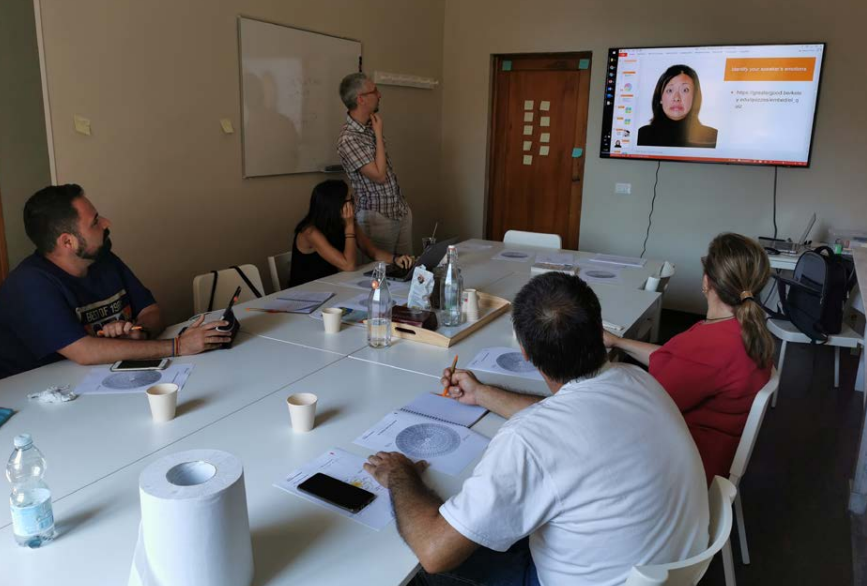
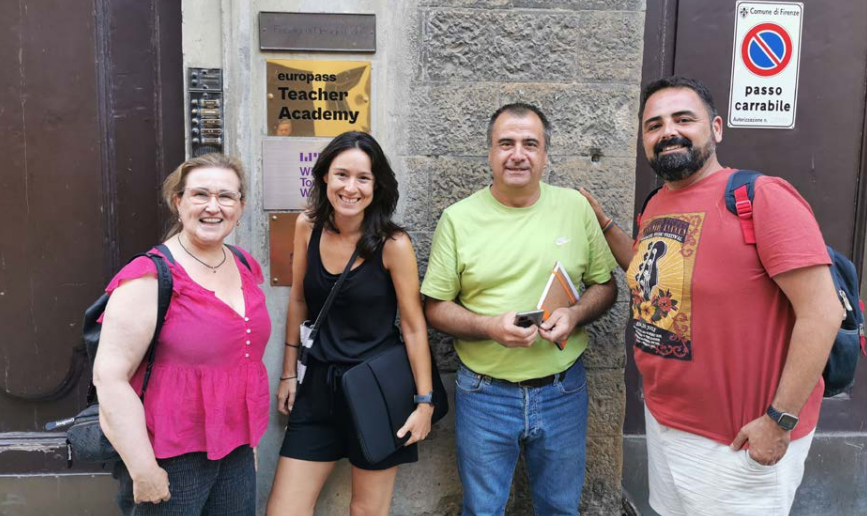
By Peter Ribič
During the summer I attended professional training for teachers in Florence, Italy. Constant changes in the environment and other challenges require new approaches to work, and thus also new skills and training. Teachers are no exception to this, quite the opposite. Constant learning and improvement is a necessity in order to be able to pass on new knowledge to younger generations. Advances in the profession, new technologies, new pedagogical approaches ... require the upgrading of knowledge, which an individual can acquire in a variety of ways, perhaps even better outside school where you can meet new colleagues, experience other cultures and environments while adopting a different perspective of your life and work. This time I attended a seminar on leadership which included topics such as accepting responsibility, planning and organising work, managing colleagues and evaluating work. The latter is definitely one of the most demanding tasks. At the seminar I was in a small group with Spanish colleagues. We may come from different cultures, have a different past and development of the country within the Union, but it turned out that we have very similar problems in pedagogical work. In the one-week seminar, we learned about topics such as motivating and managing employees, delegating tasks, planning team dynamics, active listening, and delved deeper into the values that guide us at work.One of the main focuses of the seminar was the discussion of the so-called drives that guide us through life. During this educational week, I had the opportunity to feel the vibe of Florence, the rich Renaissance culture, high summer temperatures and to meet lots of nice people.
Spain - So much to do in Barcelona!
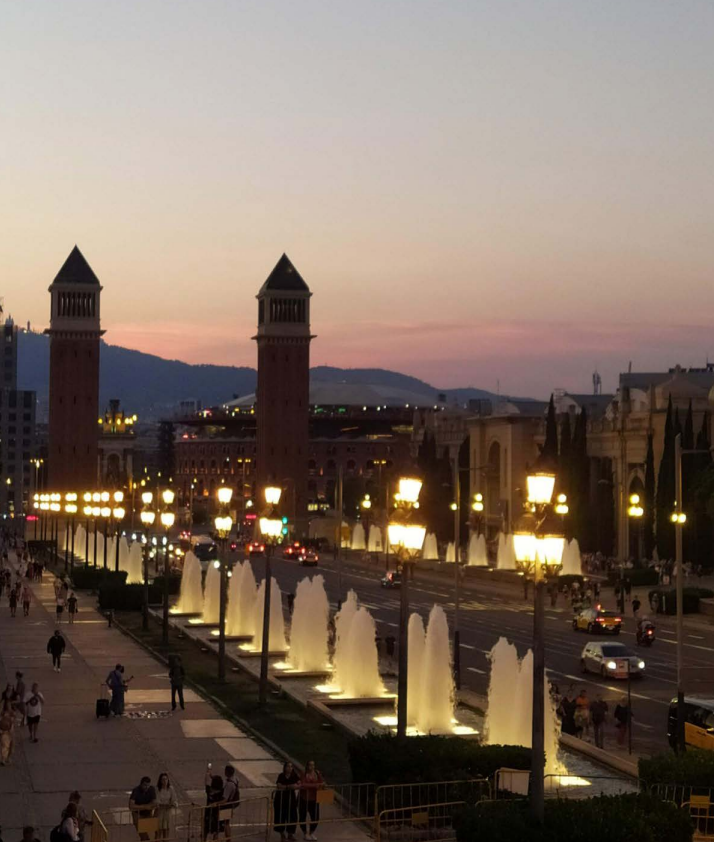
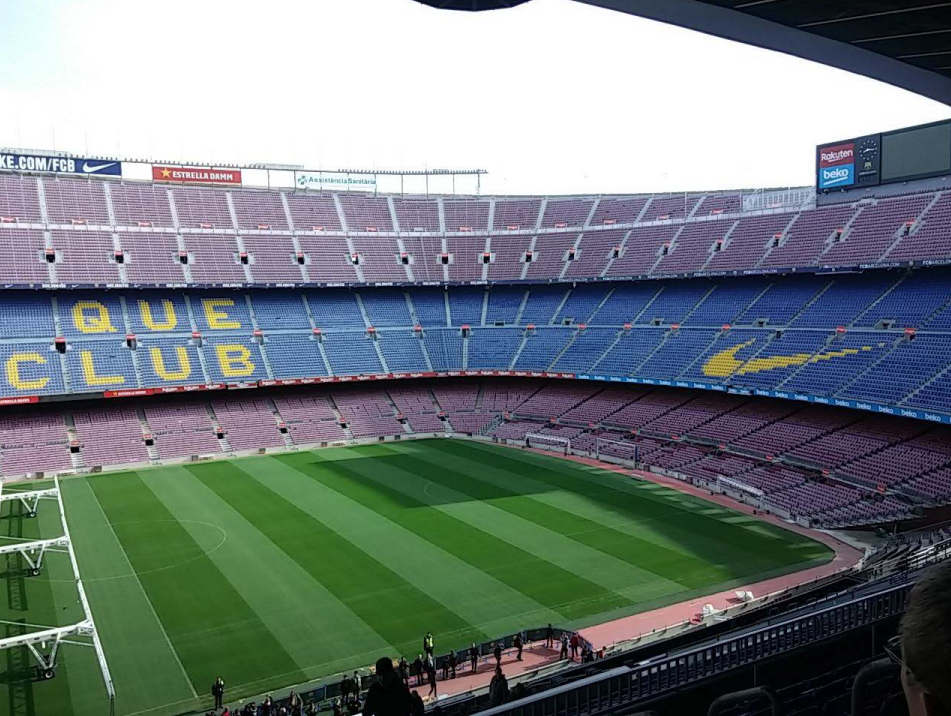
By Danijela Grubač
Do you like sports? How about architecture and good food like tapas, paella, churros and sangria … ? If your answer is yes, then Barcelona is a fantastic holiday destination for you. Barcelona is the second largest city in Spain. People are very kind, calm and always ready to help. The city is known for its spectacular football team and their Camp Nou stadium, which is also the biggest stadium in Europe. To see the city at its best I recommend renting a bicycle. It is very easy to get around due to a lot of very well marked bicycle lanes. Barcelona is a seaside city so don't miss out on the most popular urban beach called Barceloneta. If you want to fall in love with Barcelona, you have to come and feel the city vibe, experience their lively streets, meet the locals and get infected with their passion for life. I stayed in Barcelona in July to take part in an ICT training course Web Solutions for the Classrooms. Guided by an Italian trainer Federica, participants from Hungary, Romania, Germany, Croatia and Slovenia explored free web tools such as Kahoot, Quizizz, Booklet, Book Creator, Plickers, Sutori, Wordall, Canva, Clipchamp and more. Together with the sightseeing and cycling around the city in afternoons it was an unforgettable experience.
Spain - Multiculturalism in Malaga
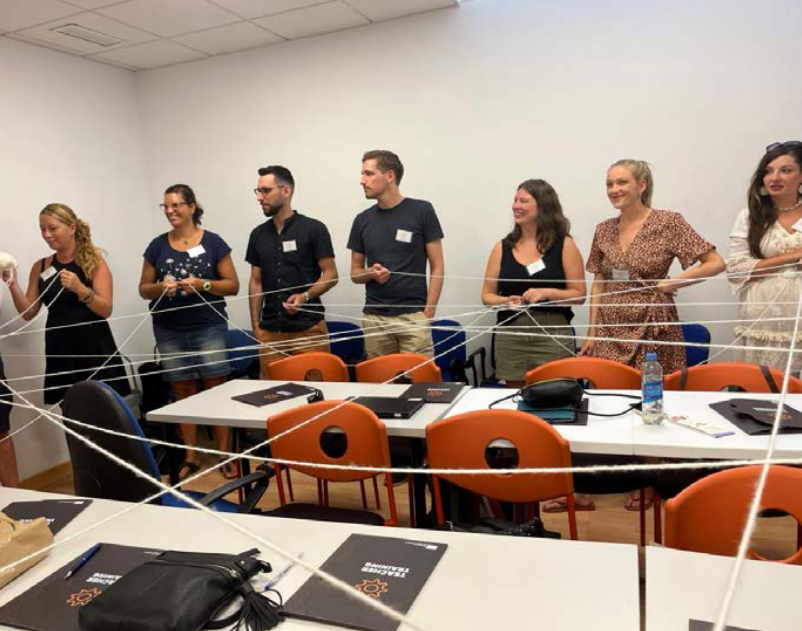
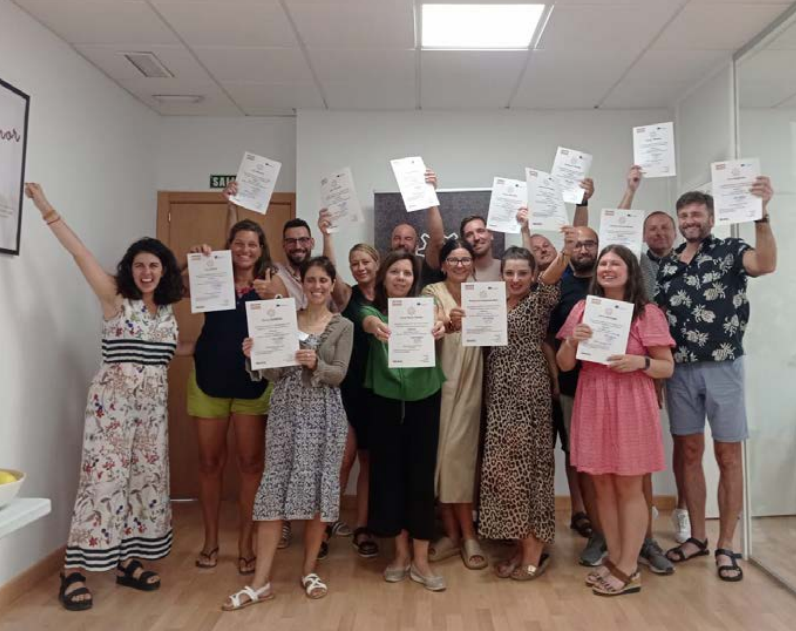
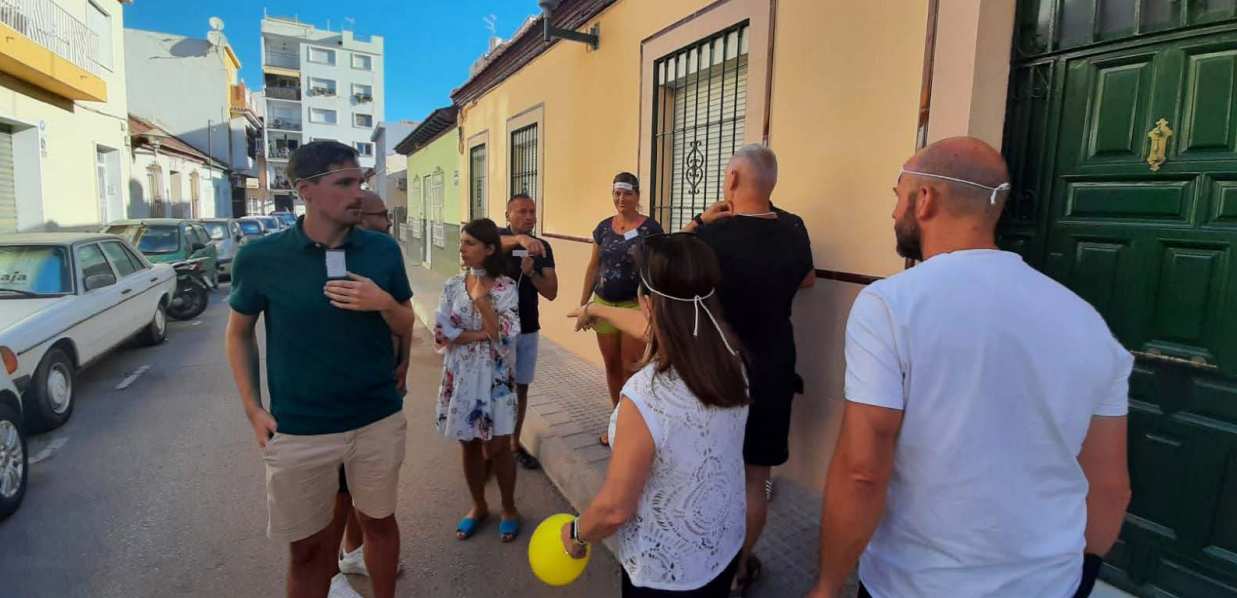
By Rok Miščevič (& Tina Križnar, Jana Koritnik, Andraž Kalamar)
In August me and my co-workers Tina Križnar, Jana Koritnik and Andraž Kalamar attended a week-long teacher training course in Malaga. It was a part of the ‘Učinek’ project under the Erasmus+ programme. The topic of the course was multicultural and international education. As a whole, the course was very educational. It was created for teachers who want to understand group dynamics, especially intragroup relations where there are a lot of cultural differences among the group members. We paid a lot of attention to how such differences affect the classroom. We learned about the various types of prejudice and stereotypes (racial, ethnic, gender, age), their causes, manifestations and how to recognize them as an opportunity for growth and as a teaching moment. We discovered the importance of dealing with them in order to be able to foster better relations among students and teachers. Most importantly, we learned a lot about various personality types that also affect group relations. Through hands-on, practical activities we increased our own ability to model and encourage active listening, empathy, and emotional literacy to favour wellbeing, group cohesion and sense of belonging, especially for members from different marginalised groups in the school community. As mentioned above, the course lasted for one week. Lectures and practical activities took place in the mornings so we had the afternoons to ourselves and were able to explore and experience the attractions of Malaga. All in all, it was an excellent experience, and we would recommend it to all our co-workers. Most of us had already attended Erasmus+ teacher training courses in the past and once again it turned out that it is truly worth the time. We would like to thank all the partners and participants who enabled us to take part in such an amazing course.
Spain - Mindfulness in Tenerife
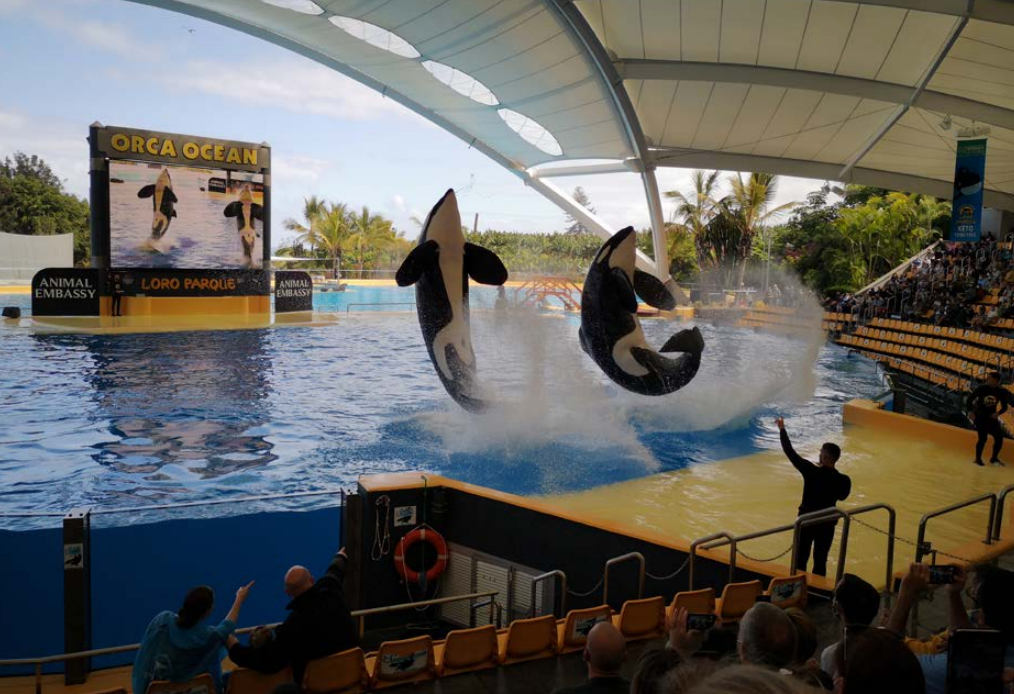
By Tadeja Polajnar & Tatjana Šubic
As part of the mindfulness course, which took place from August 15 to August 19 in Tenerife, we learned the basic techniques of breathing, relaxation, visualization, yoga and meditation. The objective of learning the practice of mindfulness is to provide the necessary tools which we can gradually incorporate into our everyday life, helping us to live a fuller life, to increase creativity and concentration as well as live a more attentive alternative to our present life. Of course, Tenerife is the ideal enviroment for such practice. A significant part of the course was improving our foreign language skills, communication skills and the use of modern communication tools. In the afternoons, we learned about geographical features, culinary, cultural and historical attractions. We were very excited about the stunning beauty of the landscape. We believe that such courses are very constructive and useful for all participants and we will be happy to transfer the newly acquired knowledge to our colleagues and students on various occasions.
Spain - A stressless week in the Canary Islands
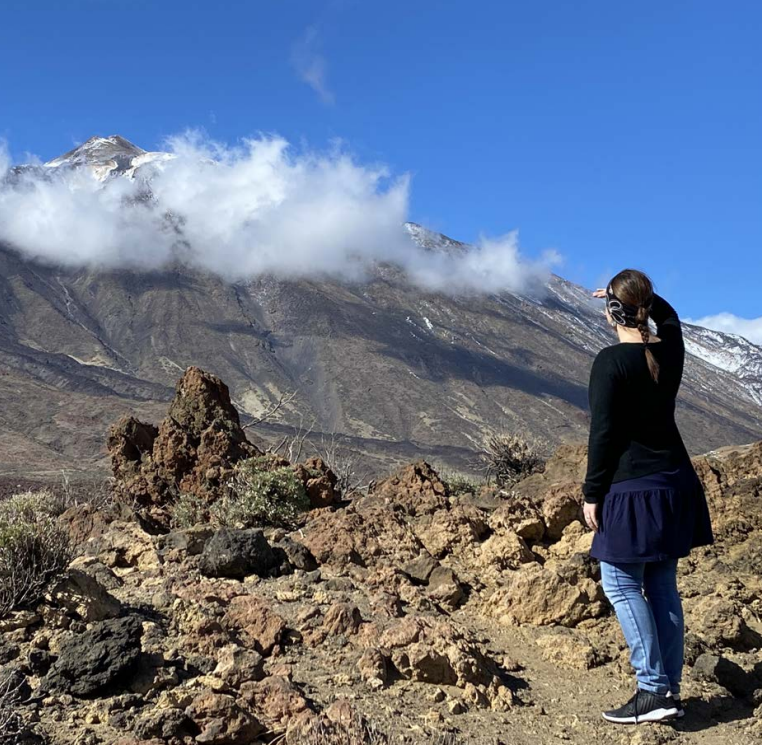
By Nada Zupanc
The course
We can hardly imagine our life without stress these days, because it follows us every step of our way. Everyone deals with it differently. I have decided to attend a course called Mindfulness-Based Stress Reduction Programme, which was held within the ’Učinek’ project. There were nine participants who came all the way from Germany, Poland and, of course, Slovenia. Our mentor was originally from Slovakia, but has been living on Tenerife for the last four years. Our course lasted twenty-five hours and included theoretical and practical knowledge about mindfulness. We got to know different techniques that can help us get to know our inner selves, increase concentration and reduce stress in our everyday life. The essence of mindfulness is being aware of what is going on in and around us. With that reason I decided to dedicate the mornings to education and the afternoons to getting to know the island. This way I was able to bring the theory of being here and now into reality, which is the main message of mindfulness and our course.
The island
Tenerife is the biggest of the Canary Islands. The main activity of people there is of course tourism, which is sensed everywhere you go. The towns are clean, the roads are new, the people are really nice, many speak English fluently. I stayed in the south of the island in a town called Playa de las Americas. It was built only because of tourism: hotels, restaurants, shops, bars, long beaches, etc. You practically won’t be able to find anything else. Because I wanted to explore the island, I rented a car and did some trips. The most important sight is for sure El Teide, which is a volcano, also known as the highest ’mountain’. It reaches 3,718 metres in height and is a part of a national park. You can drive up to an altitude of 2,200 metres by car. And in case you want to experience the top of El Teide, you can take a cable car, but you have to make a reservation in advance. The national park is definitely worth seeing, because there is a completely new world, new environment, some even compare it with the moon. I was in a town called Los Gigantes as well. It is on the west side of the island. It’s main feature are 500 to 800 metres high cliffs that rise from the sea. One whole afternoon I dedicated to visiting Loro Parque (in a town Puerto de la Cruz). It is a very special zoo, that you must see, if you are on the island. I was so amazed by the penguins, gorillas, lions, … but even more interesting were shows with parrots, dolphins, sea lions and orcas. And what makes the experience even better is, that animals really seem to be taken care of very nicely.
The weather, food and prices
Let me mention the weather as well, it was very different compared to what I had expected. In the town, where I lived we always had sunny weather with over 20 degrees. But when I was driving to the centre of the island, temperature quickly dropped to 9 degrees at most, with rain included. I had to take some extra clothes every time. I was really impressed with the food. I found it delicious since I absolutely love sea food. I suggest you try La paella, which is some kind of risotto, (usually with chicken and sea food) which is being prepared in some kind of iron pan. Prices are pretty similar to Slovenian ones (big pizza – 8 euros, small beer - 2,2 euros, pasta – 10 euros, juice a glass of juice – 2,2 euros and 98-octane gasoline – 1,569 euros per litre). I was able to see just a small part of what the island has to offer. The rest will stay for the next visit (capital city Santa Cruz de Tenerife, Garachico, Masca and many beautiful beaches). It was definitely an unforgettable experience. Everything I learnt about mindfulness will be useful in my everyday life, I got to improve my English as well and it helps with greater self-confidence of the individual too. Thank you, BC Naklo for making this possible.
Spain - Santa Cruz de Tenerife, green but not really
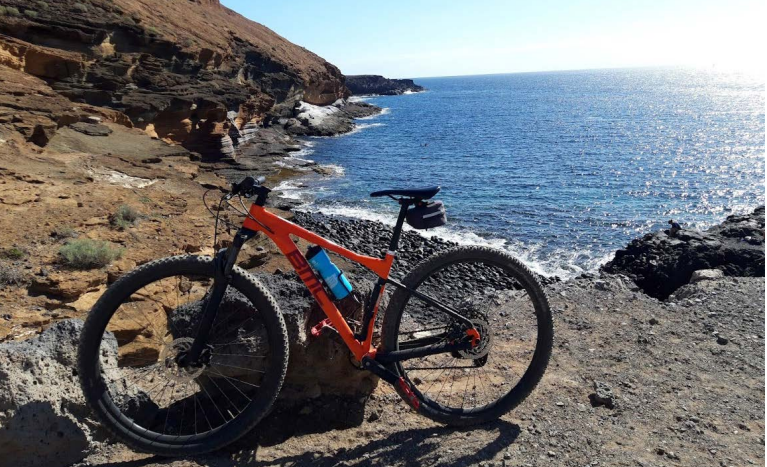
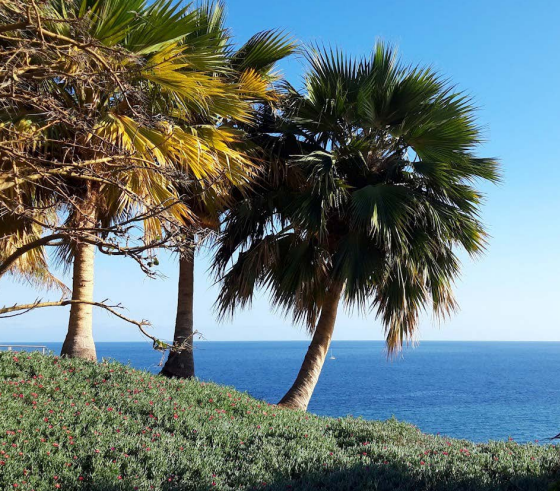
By Irena Šubic Jeločnik
An ERASMUS+ teacher training course on the use of art and drama in the classroom took me to Santa Cruz de Tenerife last February. The course with just five participants, three Romanians and two Slovenes (with widely diverse professional background) was, unfortunately, a little disappointing, however, the temperatures were lovely for this time of year. Another contrast: the city is packed with concrete and I struggled to find a few tiny parks. On the other hand, the authorities have implemented a lot of green solutions such as e-scooters and gym equipment along the coast. The most practical and the funniest to me was the fact that the streets are swept not with brooms but with palm branches! I found my haven for the week in the charming Palmetum botanical garden overlooking the sea. While the Canaries are known as a winter training destination for cyclists it turned out I had picked the wrong island: mountain biking can best be done on Gran Canaria whereas Tenerife is more appropriate for road cycling. I finally managed to rent a crappy bike in Las Americas and do a short guided tour along the coast, among cactuses and banana plantations to a black beach lined with volcanic stones. Quite and experience!
Iceland - Searching for new knowledge in Iceland
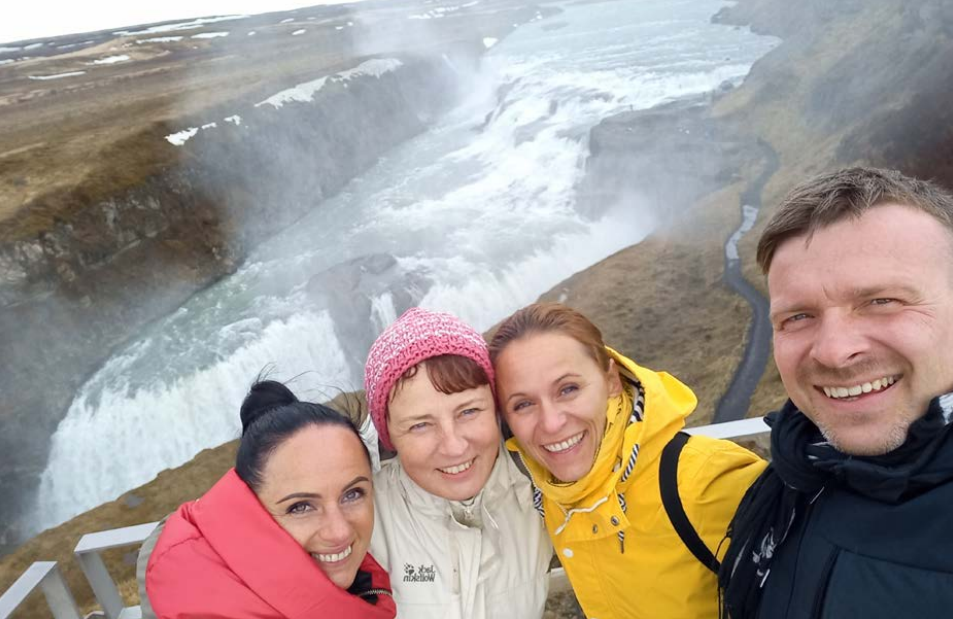
By Lenka Žigon
My second visit to Iceland in May 2022 was a part of the Erasmus+ (Staff Mobility). The National and University Library in the capital, Reykjavik, was the venue where the course took place. The main organiser was Maksima from Split, Croatia, which offered the course called Development of 21st Century Teaching Skills. In the group we were 20 teachers from different EU countries: The Czech Republic, Germany, Latvia, Lithuania, Portugal, Slovenia and Spain. Our professional backgrounds were different, one more reason to point out the importance of listening to each other when the participants discuss a particular topic from different points of views. The course was certainly a unique opportunity to learn and practise the '4 Cs' of education, i. e., Communication, Collaboration, Critical Thinking, Creativity. The strong message of the course was that education is not only 'education for University' but we have to develop a set values in our students.